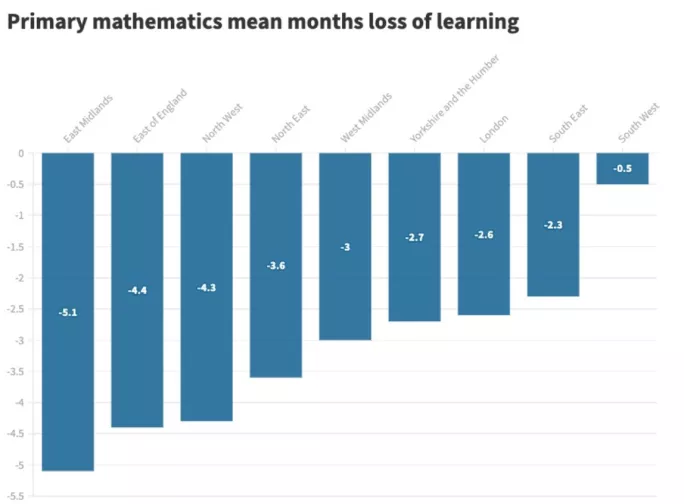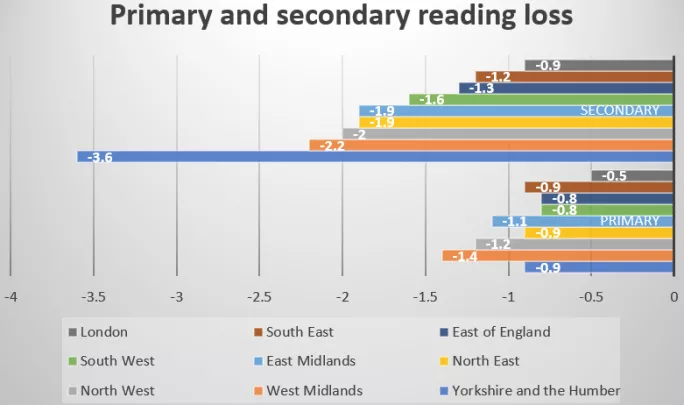The disruption to education caused by Covid-19 was almost five times higher in some parts of the country than others during the last academic year, new data released by the Department for Education suggests.
Government figures have provided a regional overview of how the pandemic has affected pupils’ education by the summer term of 2020-21.
It reveals that primary school pupils in the East Midlands suffered the most severe learning loss in maths, with over five months lost during the lockdowns as schools were forced to move to remote learning for most pupils.
Pupils in the East of England and the North West regions were also particularly adversely affected, according to the figures.
Revealed: How 2nd Covid lockdown widened learning loss
Background: UK pupils lost third of learning time during pandemic
Analysis: Will schools take the hit for Sir Kevan’s departure?
In primary maths, pupils in the East Midlands lost 5.1 months while those in the East of England lost 4.4 months and pupils in the North West lost 4.3.
The least affected regions were the South West, the South East and London.
Secondary school learning loss
In reading, secondary pupils in Yorkshire and the Humber, the West Midlands and the North West all experienced the greatest learning losses over the course of the pandemic.
In Yorkshire and the Humber, secondary pupils lost 3.6 months of reading, pupils in the West Midlands lost 2.2 months and those in the North West lost 2 months.
London was the region least affected by loss of learning in reading for secondary pupils, with data showing that less than one month (0.9) of reading learning loss was recorded at the end of summer term 2021.
Regional learning loss was previously considered as a reason to adjust exam grading for GCSEs and A levels by area in late 2020, although this was later ruled out.
In primary reading, the loss of learning was comparatively lower than that of secondary pupils, however regional disparity can still be seen with the most learning lost in the West Midlands (1.4) and the North West (1.2).
Paul Whiteman, general secretary of NAHT school leaders’ union said: “Over recent months, virtually every education expert worthy of the name has called on the government to take seriously the deep social, economic and educational impact of the pandemic on our nation’s children. This report shows the scale of the challenge in some areas.
“The coronavirus pandemic has impacted pupils in very different ways, with some much more able to continue their learning than others.
“It is, of course, the pupils who we were most concerned about before the pandemic who have faced the greatest challenges during lockdown, and we have seen a widening disadvantage gap as a result.
“The government could have ameliorated some of this by acting faster to ensure all children have equal access to technology and connectivity in order to continue learning remotely.
“Sadly, the investment from the government announced this week falls far short of what is needed.
“The increase in per pupil spending announced takes us back to 2010 levels, representing a failure to invest in children’s futures for over a decade.
“Schools will do their best with what they are given, as they always do.
“This report shows some progress made by educators once children returned to schools in the 2021 summer term.
“It is important that schools are able to spend the recovery money they are given flexibly on the programmes they know work best for the children in most need in their schools.”
The research published by the DfE for the autumn, spring and summer terms of the last academic year was conducted by the Education Policy Institute.







